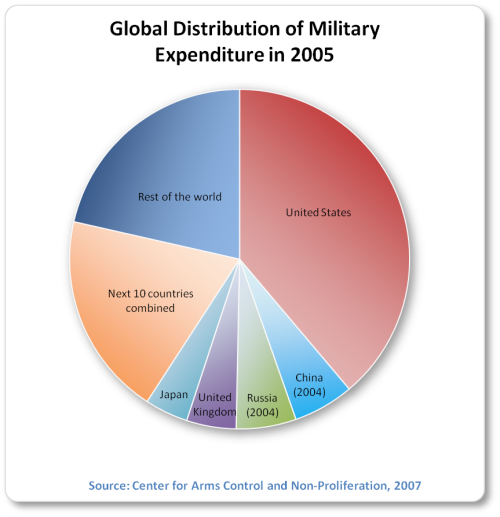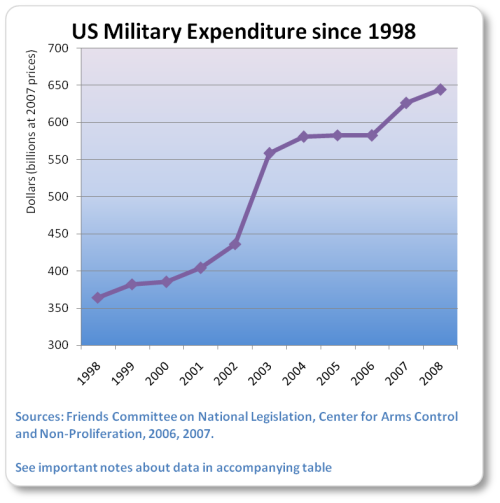Richard Armitage - Deputy Secretary of State, blamed for severe human rights
violations, torture and death, in Latin Am under Reagan, made Ambasso
President of Armitage Associates. Former board member for CACI
International, the private military contractor, which "is being investigated by no less than 5 US agencies
for possible contract violations" and "employed four interrogators at
Abu Ghraib prison" in Iraq, one of whom was singled out by General
Taguba in his report on abuses of Iraqi detainees at the prison, which
Generals have stated cost the lives of US soldiers. One of the Iran-Contra
plotters, U.S. Government stipulations in the Oliver North trial
specifically named Armitage as one of the DoD officials responsible for
illegal transfers of weapons to Iran and the Contras. Board
member of Database Technologies (DBT)/ChoicePoint Inc, subsidiary of
SAIC.
|
Paul Wolfowitz - controversial
former deputy defense secretary pushing the Iraq War, lost his post as
president of the World Bank, visiting scholar at the American Enterprise Institute (AEI) in Washington, DC. AEI houses former
George W. Bush admin figures, former ambassador to the United Nations
John Bolton and former chair of the Defense Policy Board Richard
Perle. His connection with the Iraq War and his controversial
choice to staff the bank with close associates and supporters of the
Bush administration's "war on terror" spurred widespread dissension
within the bank's staff and board.
|
|
Elliott Abrams Deputy National Security Adviser,
Founding Member of PNAC, convicted (and later pardoned) on charges
related to the Iran-Contra scandal, using behind-the-scenes tactics
that don't reveal his role, very careful about not
leaving
fingerprints, fought a rearguard effort within the Reagan
administration aimed at blocking peace initiatives in Nicaragua that
were supported by some Reagan officials, shunning negotiations in favor of
confrontational, militaristic U.S. policies. Bush appointed
Abrams chief human rights officer
and then senior director of Near East and North African Affairs,
|
| Jeb Bush - president's brother,
governor of Florida |
I. Lewis Libby - "Scooter", charged
with revealing the name of a CIA official, to avenge the Bush admin by
dissing Joe Wison
|
Zalmay Khalilzad - Unocal
consultant, appointed
2nd in Afghanistan, the Bush-Cheney Defense Department transition team.
He became an adviser to Defense Secretary Donald Rumsfeld and then
shifted to the National Security Council, where he worked under Rice.
|
William F. Buckley, Jr.
- old CIA hack writer for major newspapers
|
Dennis Ross - Camp
David
negotiator w Clinton, who blamed the rejection completely on Arafat,
later disputed by others present, and by President Clinton himself.
|
Max Boot - fmr Editorial Editor of the WSJ, Boot
is a contributing editor—along with the likes of Irwin Stelzer, Charles
Krauthammer, and Robert Kagan—of the neoconservative
flagship magazine the Weekly Standard, edited by William
Kristol.
|
Norman Podhoretz Committee
for Present Danger, Hudson Institute, Aside from Irving Kristol, few of
the writers and ideologues associated with neoconservatism can claim as
lasting an influence on the political faction as Norman Podhoretz
|
Eliot A. Cohen "the most
influential neocon in academe," Eliot Cohen is a prominent scholar of
military affairs at the Johns Hopkins School of Advanced International
Studies (SAIS)
|
Richard N. Perle Once
dubbed the “Prince of Darkness”
because of his advocacy of extremely hawkish anti-Soviet policies while
in Ronald Reagan's Department of Defense, served as chairman of
then-Defense Secretary Donald
Rumsfeld' s Defense Policy Board (DPB) in the years leading up
to the Iraq War gave him a privileged
perch from which he helped shape Bush administration foreign policies.
|
Daniel Pipes Daniel Pipes,
son of the well known anti-Soviet crusader Richard Pipes, is an
outspoken promoter of the "Islamofascism
threat" theory and is closely aligned with many high-profile
neoconservatives, many of whom are associated with Pipes' Middle East
Forum, President George W. Bush nominated Pipes to serve on the board
of the U.S. Institute of Peace (USIP).
|
Caspar Weinberger - Secretary of Defense under
President Reagan, known for his roles in the Strategic Defense
Initiative program (popularly known as Star Wars) and the Iran-Contra
Affair (resulting in his indictment and later pardon).
|
R. James Woolsey fmr CIA Director (Tim McVeigh's
helper, which he cites, was "his" Iraqi, not Saddam's)
|
Robert Zoellick - Deputy
Secretary of State
|
Paul Weyrich - fake Christian right icon, CNP member, co-founder of
Heritage has often acknowleged that he
does not intend to "conserve" anything."We are different
from previous generations of conservatives," Weyrich explained."We are no longer working to preserve the
status quo. We are radicals,
working to overturn the present power structure of the country."
|
Gary Bauer - CNP
member, major figure of the Christian Right, former presidential
candidate, key organizer of campaigns linking rightist pro-Israel
Christian groups and conservative Christian evangelicals. A close
friend of William Kristol, dates back to the Reagan administration,
where he served in a number of posts under Secretary of Education
William Bennett. vociferous advocate of an aggressive war on
terror, Bauer compared today's "anti-war left" to that of the 1960s,
arguing that in both cases the "ugly
aggression by the so-called peace movement" ultimately plays
into the hands of those supporting war.
|
Gary Schmitt - co-founder of PNAC, resident scholar at the American Enterprise Institute (AEI)
and author of numerous texts on intelligence reform and national
security, second generation neoconservatives heavily influenced by the
arcane political philosopher Leo
Strauss,
see Jim Lobe, “The Strong Must Rule the Weak,”
Foreign Policy In Focus, May 12, 2003. "Is
U.S. foreign policy being run by followers of an obscure German Jewish
political philosopher whose views were elitist, amoral, and hostile to
democratic government?"
|
Francis Fukuyama - The poorly
executed nation-building strategy in Iraq will poison the well for future such exercises,
undercutting domestic political support for a generous and visionary internationalism,
just as Vietnam did. "Neoconservatism, whatever its complex
roots, has become indelibly associated with concepts like coercive regime change, unilateralism, and
American hegemony. (except
it was ALWAYS that) What is needed now are new ideas, neither
neoconservative nor realist, for how America is to relate to the rest
of the world—ideas that retain the neoconservative
belief in the universality of human rights, but without its
illusions about the efficacy of American power and hegemony to bring
these ends about." came under the sway of Allan Bloom, an
important follower of Leo Strauss
End
of History: With the fall of the USSR, and American 'liberalism'
remaining standing, Fukuyama contends, history
has reached its destination. This is not a happy ending,
however. The loss of great
ideological conflicts will bring a consumer society, a universal
homogenous state, bureaucratization,
and 'centuries of boredom.' Nietzsche's prediction may come
true: we will become a civilization
of last men— dull, satisfied
customers— 'without daring,
courage, imagination, and idealism'
|
Midge Decter wife of
Norman Podhoretz (one of the key forefathers of neoconservatism), has
been a major player for decades in the peace-through-strength
ideological movement. She was a founding member of the hawkish
Coalition for a Democratic Majority, served on the Committee on the Present Danger,
directed the Nicaraguan Freedom Fund,
and founded the Committee for a Free
World. She continues to advocate hard-line policies from her perch at
the neoconservative Institute on
Religion and Public Life, and she is affiliated with the Project for the New American Century
as well as the Heritage Foundation
and Hoover Institution, and ACPC, a group "fomenting peace" with
Al-Qaeda in Chechnya, along with CIA, Brzezinski, and some oil barons.
|
Thomas Donnelly Project for the
New American Century: Fellow, American Enterprise Institute: Fellow,
The National Interest: Former editor,
Lockheed
Martin:
Former communications director. argues that the U.S. military
needs to
be upgraded and expanded to meet the “strategic and military realities
of our post-September 11 world.” According to Donnelly, “The gap
between America's strategic reach and its military grasp has reached a
point of crisis.” Criticizing the Bush admin in 2005, he
said “It's
time to stop thinking and start spending." one
of the few
neoconservative ideologues to support U.S.
intervention in Liberia in mid-2003.
|
Stephen Cambone former
undersecretary of defense for intelligence, longtime associate of
Donald Rumsfeld. collaborated with rightist and neoconservative
outfits—including the National Institute for Public Policy (NIPP) and
the Project for the New American Century (PNAC)—on developing hardline defense and security proposals
just prior
to the election of George W. Bush, regarded as a core member of a
hawkish faction in the Bush administration. split hairs on
whether the
Geneva Conventions were applicable to intelligence gathering in
Iraq,
defense of the role of military intelligence in interrogations.
|
Ellen Bork - daughter of
conservative icon and former Supreme Court justice nominee Robert Bork,
deputy director of the Project for the New American Century.
|
Paula Dobriansky - Undersecretary
of State for Democracy and Global Affairs, Hudson
Institute: Former fellow, supporter
of HUMAN RIGHTS and against
TORTURE, unless the US or it's allies is doing the torture, in
which
case it becomes "abuses".
|
Max M. Kampelman - Max
Kampelman is a retired diplomat and Cold War-era arms control
negotiator who has supported the work of several neoconservative-led
advocacy groups that have been instrumental in pushing militarist U.S.
policies as part of the “war on terror.” Such groups include the
Project for the New American Century (PNAC), the Jewish Institute for
National Security Affairs, and the Foundation for Defense of
Democracies.
Kampelman also supported the work of some advocacy groups that emerged
in the 1970s to push for hardline, anti-Soviet policies and that served
as building blocks for the then-burgeoning neoconservative political
faction. Among these were Social Democrats USA, a group that splintered
from the Socialist Party USA in 1972 2; the Coalition for a Democratic
Majority (CDM), which was created in the early 1970s by disgruntled
Democrats who were angered by the emergence of antiwar elements in the
party, and the Committee on the Present Danger (CPD), a group that
helped push for an end to détente with the Soviet Union and many of
whose members joined the Reagan administration. (For more on CDM, see
Right Web Profile: Penn Kemble; for an account of the work of CPD, see
Anne Hessing Cahn, Killing Détente: The Right Attacks the CIA,
Pennsylvania State University Press, 1998.)
Kampelman also supports the work of a number of other organizations
known for their militarist “war on terror” agendas and support of
policies in line with Israel’s Likud Party, which is largely supportive
of the settler movement and has opposed peace efforts aimed at creating
a Palestinian state. He is a “Distinguished Advisor” to the Foundation
for the Defense of Democracies, 5 a member of the Board of Advisors of
the Jewish Institute for National Security Affairs, 6 and a member of a
new (4th) version of the Committee on the Present Danger created after the
9/11 attacks to promote a hardline agenda for the “war on terror.” 7
Kampelman is also chairman emeritus of the Board of Trustees of Freedom
House, 8 a U.S.-government-funded group that has been criticized for
being an instrument of propaganda.
 Peddlers of Crisis and the Committee on the Present Danger: The Big Lie, from the Cold War to the War on Terror Peddlers of Crisis and the Committee on the Present Danger: The Big Lie, from the Cold War to the War on Terror
|
Morton I.
Abramowitz |


